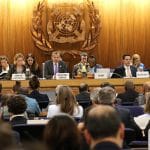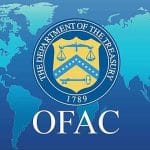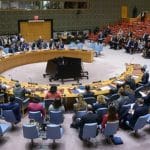On May 24, dozens of members of the European Parliament held a meeting in Brussels to discuss prospective changes in policy toward the Iran. They were joined by the Iranian Resistance leader Maryam Rajavi, who has been designated by the National Council of Resistance (NCRI) of Iran to serve as transitional president when the current regime’s is overthrown.
Many participants in the meeting expressed optimism that that outcome is within reach following eight months of anti-government protests sparked by the killing, last September, of Mahsa Amini by the “morality police.”
The resulting uprising was led, to a great extent, by women and led the chanting of provocative slogans like “death to the dictator, whether the Shah or the Supreme Leader.” Accordingly, Rajavi said in her speech, “I am here today to echo the desire of the protesters, especially Iranian women, who have risen-up against religious dictatorship. The Iranian people have risen to overthrow the religious fascism. They reject tyranny in all its forms and will persist in their fight until they achieve freedom and democracy.”
The meeting was held under the title “Iran: Prospect for Change and EU Policy,” and was chaired by Javier Zarzalejos, an MEP from Spain and member of the European People’s Party Group. Various other groups were also represented, from across the spectrum of political affiliations. The variety of participation reflects an underlying diversity among supporters of the NCRI and Rajavi’s ten-point plan for Iran’s future, which was re-endorsed by a number of speakers.
A smilar endorsement was offered a day earlier by some 110 former world leaders, representing 45 countries, who attached their names to a new global initiative urging more substantive support for the current uprising and the organized Iranian resistance movement.
“We believe it is for the Iranian people to decide their future,” said the statement whose signatories included former US Vice President Mike Pence and former European Commission President Jean-Claude Juncker. “However, we recognize that for four decades, the democratic coalition National Council of Resistance of Iran has constantly and tirelessly pursued democratic change. In this respect, we believe the Ten-Point Plan articulated by the NCRI’s President, Maryam Rajavi, deserves support.”
That plan entails free and fair elections and the creation of legal safeguards for the rights of groups that are marginalized and persecuted under the current system, including women but also ethnic and religious minorities. Accordingly, the plan calls for the separation of religion from the state, while also setting the future of a democratic republic for Iran apart from its current theocratic system via a commitment to remain a non-nuclear state and pursuing peaceful relations with countries that Tehran now considers enemies.
In urging comprehensive changes to the West’s policies toward Iran, the May 23rd statement and May 24 parliamentary meeting, evoked the possibility of short-term progress toward a transformative, long-term goal for Iran.
The NCRI’s European and American supporters described possible impediments to Iran’s adversarial foreign policy by highlighting the terrorist activities of the country’s extremist paramilitary organization, the Islamic Revolutionary Guard Corps, or IRGC.

The United States already has listed the paramilitary group as a terrorist organization in 2018, leading to speculation that the U.S.’ allied nations would follow suit. But this has yet to come to pass, despite expressions of support for such measures by a majority of European and British lawmakers, as well as continuous pressure from the NCRI and other democratic Iranian activist groups.
Reticence to prosecute Iranian officials and institutions was also a topic of discussion during the May 24 meeting. The NCRI and its supporters have long accused Western leaders of tending toward appeasement in their dealings with the Islamic Republic, a fact that multiple speakers reiterated while describing the IRGC’s terrorist designation as a “necessary” measure that has been blocked by unjustifiable political considerations.
Similar political hang-ups were blamed for the international community’s failure to act upon a number of other concrete recommendations, including the abandonment of nuclear negotiations and the re-imposition of sanctions that remain suspended, despite the 2016 deal’s effective collapse.

Some European lawmakers urged their own governments to recognize the Iranian people’s right to pursue the overthrow of the hardline clerics and to fight back against repression.
The international community has roundly condemned the brutal repression of the Iranian people over the past several months of protests.
On May 22, the European Union imposed its eighth round of sanctions since the start of the uprising, bringing the number of individuals and entities targeted for their role in crackdowns to 160. The new sanctions focused on freezing assets and imposing travel restrictions for people connected to the IRGC Cooperative Foundation, which handles the Guards’ investments and is seen as a form of slush fund for the IRGC. Washington imposed sanctions on this group in January.
Nevertheless, Iranian expatriates and human rights activists have criticized Western governments for their apparent unwillingness to move beyond these familiar and largely ineffective symbolic measures.
The May 23rd statement echoed this criticism, while appealing to the leaders of the United States, Canada, Britain, and the EU to pursue accountability for the crimes of the Islamic Republic.
According to an intelligence network associated with the NCRI’s main constituent group, the MEK, more than 750 people have been killed in mass shootings or under torture since the uprising began, while 30,000 have been arrested.
Additionally, at least seven people have been executed on spurious charges stemming from their participation in the uprising. Three of these executions were carried out on May 19 amidst a chorus of international outcry over a lack of due process and detailed allegations of torture underlying false confessions from the three co-defendants.
In the run-up to those executions, there were numerous calls for Western governments to do more to stop the killings.
Rajavi made reference to these unheeded calls on May 24, saying, “Isn’t opposing executions one of the well-known principles of the European Union? So why, when it comes to Iran, do economic interests and political considerations downplay the importance of human rights situation?”








